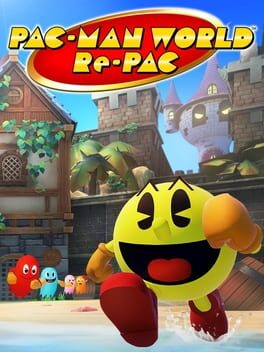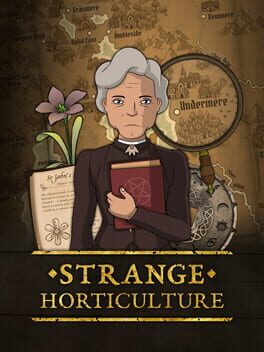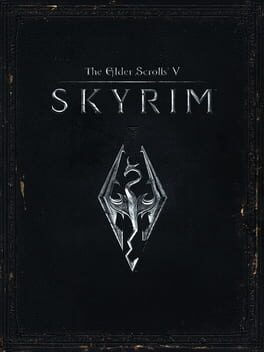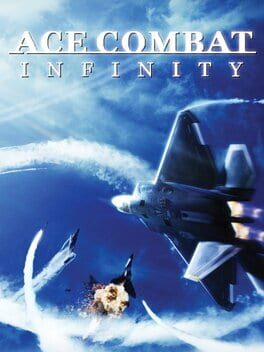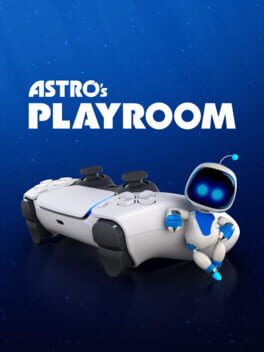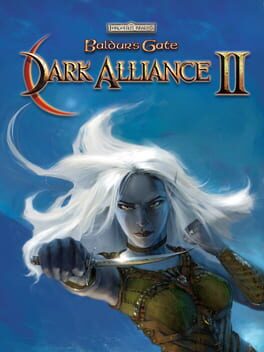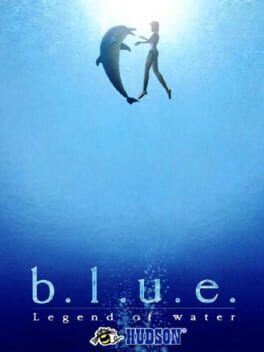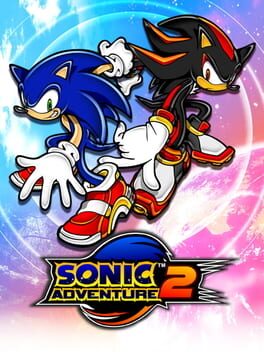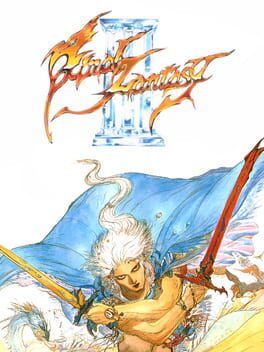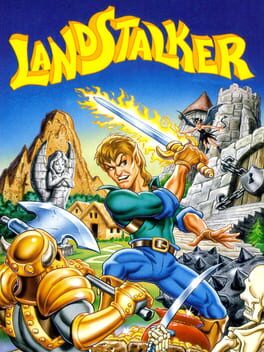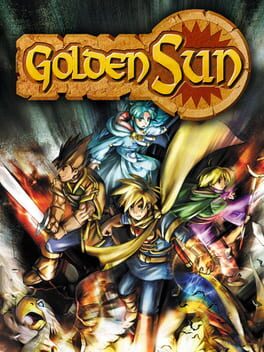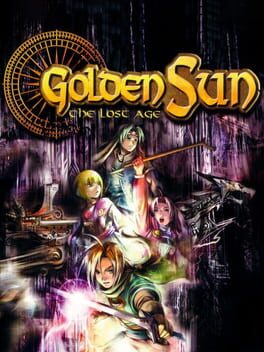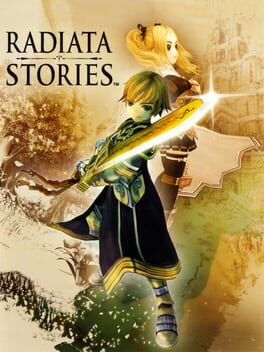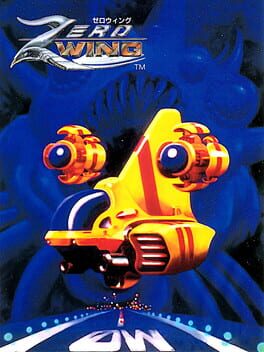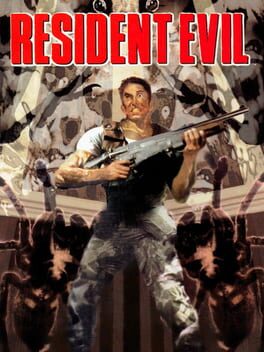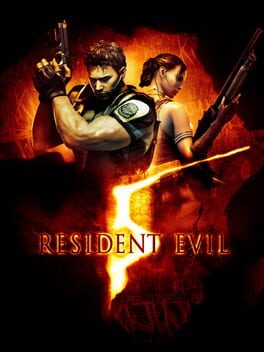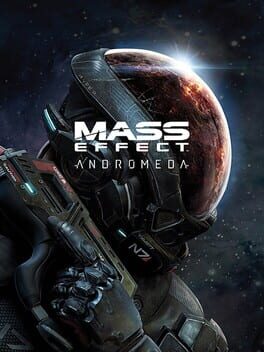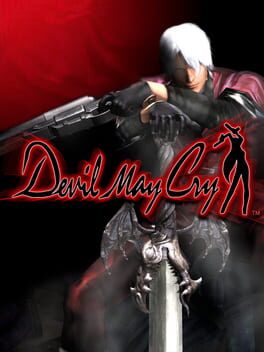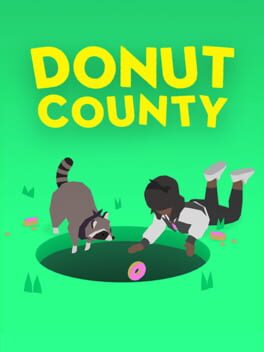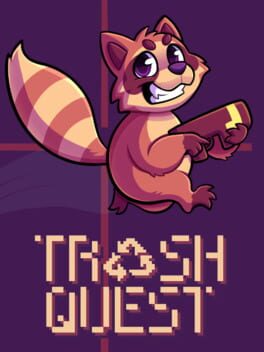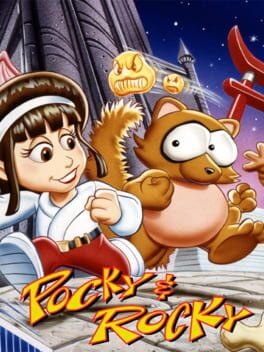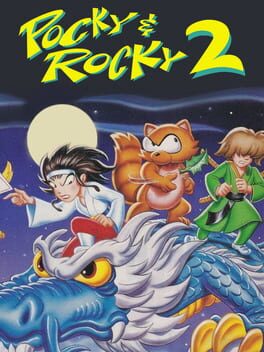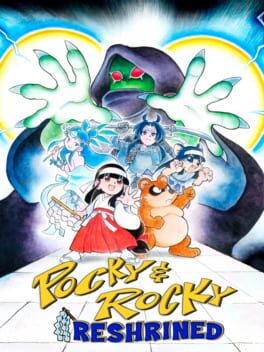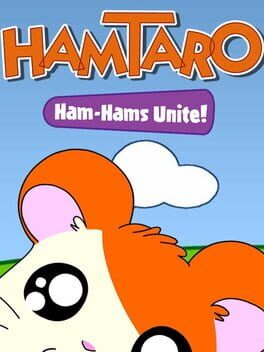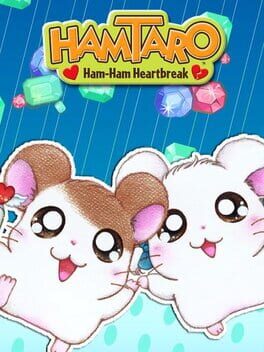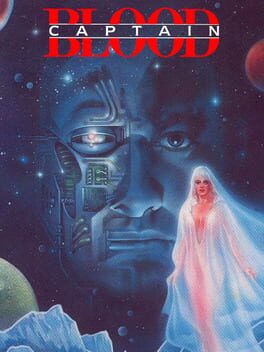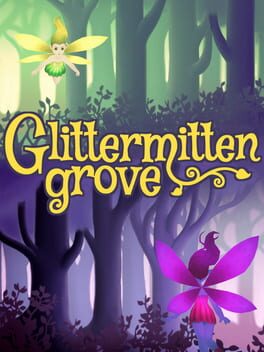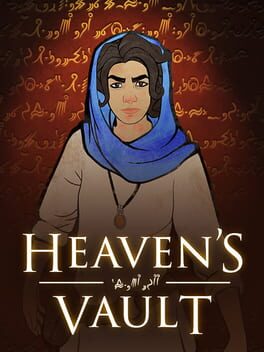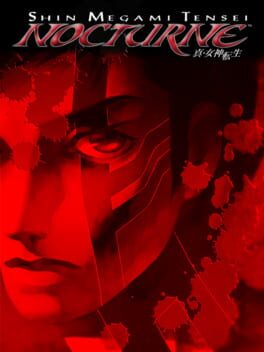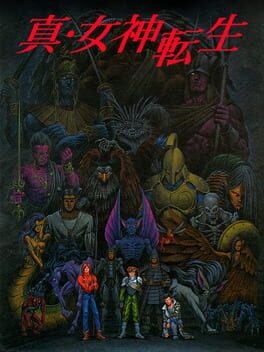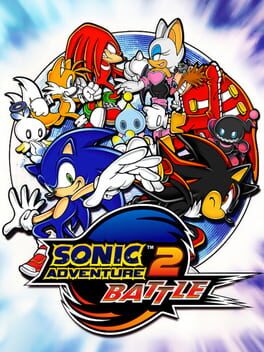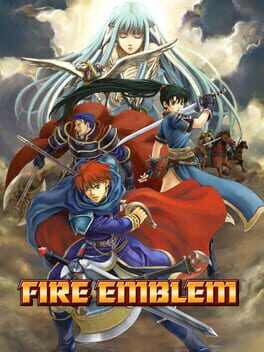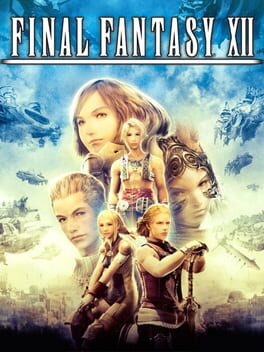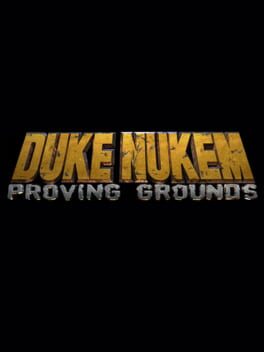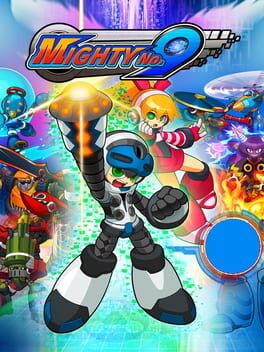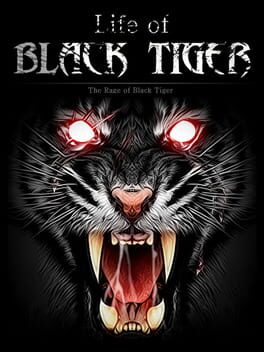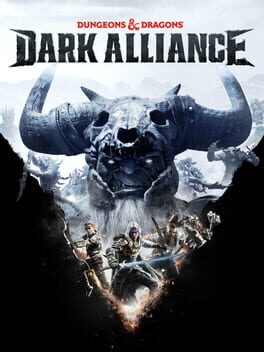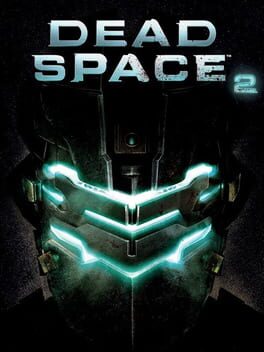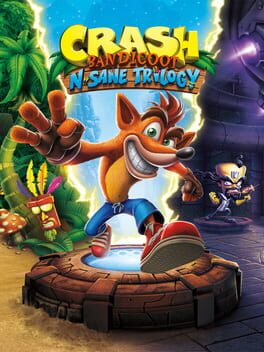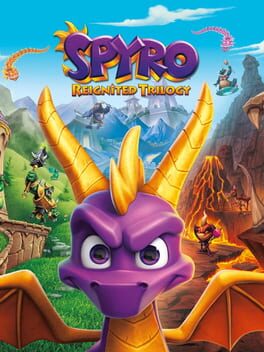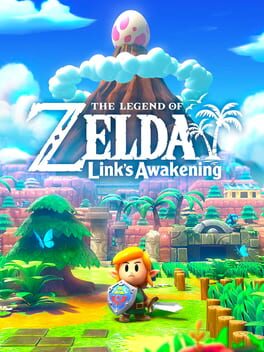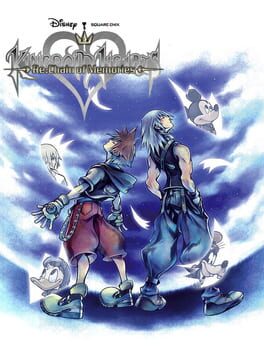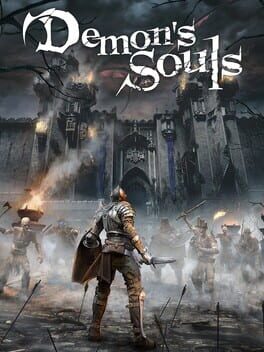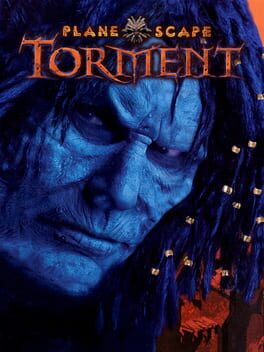Penumbra
449 reviews liked by Penumbra
Tunic
2022
So I needed something to cleanse the palate after 100,000 hands of Balatro and this did the trick nicely. Beat the game in 10 hours-ish and now going back to find all manual pages.
Stuff I really liked: The manual of course. Its so goddam cute, and a nice way to give hints and maps to the player. The music is superb, with some absolutely gorgeous tracks (between this and Cocoon, we're in a great era for indie soundtracks). I like how it rewards the player for exploring every inch of the maps, as secret rooms are often out of sight and obscured.
Stuff that was ok: graphics are nice, but not jaw dropping. Combat is basically Dark Souls-Lite, you got attack, dodge and then items and magic to use. Pretty basic, but serviceable. The game is pretty hard, and you will get more than a few very cheap deaths because the combat is not refined enough, and also the camera is too pulled back for really precise combat. Level design is ok, and the way the maps all connect is cool (and once again very Souls).
Stuff that got old, fast: cheap combat deaths, annoying enemies. Bosses are pretty hard, but mostly because of how spongy they are and how easy it is to get hit because of the imprecise controls and camera not being close enough to the action. Backtracking and not knowing where to go next. The manual gives you just enough hints, but man there is so much random wandering around and backtracking through areas, over and over again. Constantly pulling up the manual to check the maps to see where to go, just to get to the fast travel nexus area, to get to another area, just on the off chance there is some treasure or some room that wasn't accessible the first time through, but now with new abilities might be.....yeah that aspect of the game is tedious and boring.
With its Zelda inspired aesthetic and Dark Souls mechanics, this was a lot of fun. I like how getting the manual pages are so important, because without them you are basically wandering blindly through this world. Cute graphics, great music. Really good game, and with a few tweaks could have been a classic.
Edit: an extra 5 or so hours to get the Plat. The puzzles you need to decipher to get the secret treasures and fairies, not to mention getting all the manual pages and opening that friggin' mountain door tho.....ABSOLUTELY RIDICULOUS. Took me about 5 hours using online guides, without those it would have been about 50 hours, if I could have done it at all. Really obscure crazy "how the fuck did anyone work this out?" kind of logic. That input to open the mountain door is just bananas on its own. I kinda respect it, but at the same time, I don't wanna have to use guides to work this shit out. If anyone got the Plat without using a guide or getting any help, I call bullshit.
Stuff I really liked: The manual of course. Its so goddam cute, and a nice way to give hints and maps to the player. The music is superb, with some absolutely gorgeous tracks (between this and Cocoon, we're in a great era for indie soundtracks). I like how it rewards the player for exploring every inch of the maps, as secret rooms are often out of sight and obscured.
Stuff that was ok: graphics are nice, but not jaw dropping. Combat is basically Dark Souls-Lite, you got attack, dodge and then items and magic to use. Pretty basic, but serviceable. The game is pretty hard, and you will get more than a few very cheap deaths because the combat is not refined enough, and also the camera is too pulled back for really precise combat. Level design is ok, and the way the maps all connect is cool (and once again very Souls).
Stuff that got old, fast: cheap combat deaths, annoying enemies. Bosses are pretty hard, but mostly because of how spongy they are and how easy it is to get hit because of the imprecise controls and camera not being close enough to the action. Backtracking and not knowing where to go next. The manual gives you just enough hints, but man there is so much random wandering around and backtracking through areas, over and over again. Constantly pulling up the manual to check the maps to see where to go, just to get to the fast travel nexus area, to get to another area, just on the off chance there is some treasure or some room that wasn't accessible the first time through, but now with new abilities might be.....yeah that aspect of the game is tedious and boring.
With its Zelda inspired aesthetic and Dark Souls mechanics, this was a lot of fun. I like how getting the manual pages are so important, because without them you are basically wandering blindly through this world. Cute graphics, great music. Really good game, and with a few tweaks could have been a classic.
Edit: an extra 5 or so hours to get the Plat. The puzzles you need to decipher to get the secret treasures and fairies, not to mention getting all the manual pages and opening that friggin' mountain door tho.....ABSOLUTELY RIDICULOUS. Took me about 5 hours using online guides, without those it would have been about 50 hours, if I could have done it at all. Really obscure crazy "how the fuck did anyone work this out?" kind of logic. That input to open the mountain door is just bananas on its own. I kinda respect it, but at the same time, I don't wanna have to use guides to work this shit out. If anyone got the Plat without using a guide or getting any help, I call bullshit.
Pac-Man World Re-Pac
2022
Cyberpunk 2077
2020
"Just focus on tying up all your loose ends - then you and I are leaving this city once and for all." ~ Judy Álvarez
For many, Cyberpunk 2077 will always be remembered as the game with arguably the worst launch next to No Man's Sky. It was a bugfest and the console experience was so bad that refunds were provided from the developers themselves. But I'm not here to talk about the launch - instead I would like to share my personal experience after ~100 hours of playing and getting all available endings, entirely in patch 2.1 and right off the bat with Phantom Liberty (which I reviewed already).
Cyberpunk really shines in terms of presentation. The vibes are incredible, Night City nails the feeling of a dystopian and futuristic metropolis perfectly. You know, flashy neon lights and advertisements are plastered all over the city and the streets are always busy. Another thing that really helps the immersion here is the lighting. An often overlooked aspect, but it's probably the best ambient lighting I've ever seen in a game alongside Red Dead Redemption 2. Do yourself a favor and cruise through Night City on a rainy night, you'll see what I'm talking about. By the way, this is without Raytracing. RTX enabled is a whole different beast, but I didn't keep it on for long, because it was taking a serious toll on my frames and I'm a person who likes to enjoy games with a smooth framerate over graphical fidelity all day.
The main story is solid, albeit not very long. You could probably finish it under 20 hours in total if you're beelining the main quests and ignore the side content. Despite the short runtime, you'll find yourself in a lot of cool setpieces and get acquainted to many great characters, each with their own individual questline. I would definitely recommend playing those quests, since they're a lot more personal than the overarching narrative and really help understanding the struggles and personalities of V's friends better. Speaking of those friends, I think the fluff text messages you get every now and then are a great feature. Makes the world feel more alive and it's always nice to see characters being relevant outside of their own contained substories. Romance is also a neat little mechanic - I really like how CDPR provides extra text messages for your partner, so they ask about V's life every now and then. There's an unique quest where you can also hang out with them at your apartment and talk about stuff, this is repeatable, but unfortunately the dialogue repeats after the first time. Just use your imagination here and you're golden.
Cyberpunk's side content is mainly divided into two different mission types - gigs and side jobs. Gigs are one-time missions where you do a quick job for a fixer of choice, like breaking into an apartment to retrieve some data for a client. How you handle those missions is entirely up to you (unless there's an optional objective you'd like to complete), so you could opt for a stealthy approach or just shoot your way through the enemies. Combat in general is very diverse, you can have Mantis Blade implants inside your arms or blind enemies with hacks - there are so many possible builds. I went with a Netrunner/Gunslinger build, since not many games offer you the opportunity to weaken your opponents by just hacking them! And pistols just feel like the most comfy ranged option to me - a silenced one for stealth and another unsilenced one for loud combat. If you're still unsure on a build, I'd recommend testing some of the iconic weapons (basically the "legendary" weapons of this game), since they come with unique perks. There's a lot of them, so I'm sure some of them will appeal to you. Now, I didn't go in detail about the side jobs, but that's because they're more narrative-driven quests. Some of them feel like the Stranger quests in RDR2, while others have more complex tales to tell. So basically they are a great pastime if you're looking for more worldbuilding in Night City.
If you found yourself asking the whole time "But what about the bugs?", while reading this, then I'll gladly answer that for you. In my 97 hours of playtime I only had a single crash happen (right before writing this review ironically), but since the game autosaves often enough, it was a loss of like 3 minutes only. I haven't encountered a single game-breaking bug, just some small immersion-breakers every now and then, alongside two "real" bugs. This includes various items clipping into the hands of NPCs when they were supposed to put them away and NPCs in general teleporting on rooftops where they aren't supposed to be. The "real" bugs were my V glitching through a wall after a character crashed my car into that wall in a scripted cutscene (had to reload my save) and I've also had enemies walk through a closed garage door once - but that one was rather funny, despite being unfair. There's another problem I'd like to address, but I'm not entirely sure if it's a bug, so I'm not going to label it as one. It's related to quests starting through calls of certain characters. The game explicitly tells you "Wait a day until this character calls you back." and then sometime they just don't call at all, despite 24 hours having passed in-game. Worst offender was when I tried to start the follow-up mission to the companion mission "Off the Leash", the quest giver was supposed to call after one in-game day but it took me two real-time hours (after several virtual days passed already) for that character to call. For your own sanity I recommend doing other gigs or side jobs inbetween, because I'm very sure the calls will come on time if you don't just try to exploit the waiting feature to skip to those quests instantly. Try to let it play out naturally.
Are you a fan of the Edgerunners anime? Well, good news for you! The world of Cyberpunk 2077 also includes small nods to the series, like the graves of the deceased characters at the cemetery. There's also a side job where you can get David's iconic jacket and you can find Rebecca's famous shotgun out in the world too (if you remember the spot she left it in the anime).
The final point I'd like to address in this review is the soundtrack. (Yeah, there are other songs besides I Really Want To Stay At Your House.) While the OST in The Witcher 3 had a calmer, more comforting vibe, Cyberpunk's music fits the high octane combat accordingly, but some of the best tracks come from the sad and serious moments in the game. For car rides, the different radio stations allow you to listen to your music genre of choice. Speaking of the cars, I find it a lot more satisfying to drive to quest locations than to just quick travel there (which I regrettably did a lot in like the first 20 hours of my playthrough). It's just a lot more immersive and driving feels great if you have a car you like. (My personal favorite ride is the Outlaw, great speed and handles well.)
I have talked a lot about this game now. That's because I love it. So if you would ask me if Cyberpunk is worth it, I would definitely recommend you to pick up the base game on sale sometime and go for Phantom Liberty if you want to spend more time in this fantastic world. It's pretty much in a fixed state now and if what I described in this review seems interesting to you, why not give it a go? There were very few moments where I was actually bored, even the beginning is great and brings you pretty fast into the action (unlike a certain cowboy game I have named several times in this review already).
That's all I wanted to share - thanks for reading.
For many, Cyberpunk 2077 will always be remembered as the game with arguably the worst launch next to No Man's Sky. It was a bugfest and the console experience was so bad that refunds were provided from the developers themselves. But I'm not here to talk about the launch - instead I would like to share my personal experience after ~100 hours of playing and getting all available endings, entirely in patch 2.1 and right off the bat with Phantom Liberty (which I reviewed already).
Cyberpunk really shines in terms of presentation. The vibes are incredible, Night City nails the feeling of a dystopian and futuristic metropolis perfectly. You know, flashy neon lights and advertisements are plastered all over the city and the streets are always busy. Another thing that really helps the immersion here is the lighting. An often overlooked aspect, but it's probably the best ambient lighting I've ever seen in a game alongside Red Dead Redemption 2. Do yourself a favor and cruise through Night City on a rainy night, you'll see what I'm talking about. By the way, this is without Raytracing. RTX enabled is a whole different beast, but I didn't keep it on for long, because it was taking a serious toll on my frames and I'm a person who likes to enjoy games with a smooth framerate over graphical fidelity all day.
The main story is solid, albeit not very long. You could probably finish it under 20 hours in total if you're beelining the main quests and ignore the side content. Despite the short runtime, you'll find yourself in a lot of cool setpieces and get acquainted to many great characters, each with their own individual questline. I would definitely recommend playing those quests, since they're a lot more personal than the overarching narrative and really help understanding the struggles and personalities of V's friends better. Speaking of those friends, I think the fluff text messages you get every now and then are a great feature. Makes the world feel more alive and it's always nice to see characters being relevant outside of their own contained substories. Romance is also a neat little mechanic - I really like how CDPR provides extra text messages for your partner, so they ask about V's life every now and then. There's an unique quest where you can also hang out with them at your apartment and talk about stuff, this is repeatable, but unfortunately the dialogue repeats after the first time. Just use your imagination here and you're golden.
Cyberpunk's side content is mainly divided into two different mission types - gigs and side jobs. Gigs are one-time missions where you do a quick job for a fixer of choice, like breaking into an apartment to retrieve some data for a client. How you handle those missions is entirely up to you (unless there's an optional objective you'd like to complete), so you could opt for a stealthy approach or just shoot your way through the enemies. Combat in general is very diverse, you can have Mantis Blade implants inside your arms or blind enemies with hacks - there are so many possible builds. I went with a Netrunner/Gunslinger build, since not many games offer you the opportunity to weaken your opponents by just hacking them! And pistols just feel like the most comfy ranged option to me - a silenced one for stealth and another unsilenced one for loud combat. If you're still unsure on a build, I'd recommend testing some of the iconic weapons (basically the "legendary" weapons of this game), since they come with unique perks. There's a lot of them, so I'm sure some of them will appeal to you. Now, I didn't go in detail about the side jobs, but that's because they're more narrative-driven quests. Some of them feel like the Stranger quests in RDR2, while others have more complex tales to tell. So basically they are a great pastime if you're looking for more worldbuilding in Night City.
If you found yourself asking the whole time "But what about the bugs?", while reading this, then I'll gladly answer that for you. In my 97 hours of playtime I only had a single crash happen (right before writing this review ironically), but since the game autosaves often enough, it was a loss of like 3 minutes only. I haven't encountered a single game-breaking bug, just some small immersion-breakers every now and then, alongside two "real" bugs. This includes various items clipping into the hands of NPCs when they were supposed to put them away and NPCs in general teleporting on rooftops where they aren't supposed to be. The "real" bugs were my V glitching through a wall after a character crashed my car into that wall in a scripted cutscene (had to reload my save) and I've also had enemies walk through a closed garage door once - but that one was rather funny, despite being unfair. There's another problem I'd like to address, but I'm not entirely sure if it's a bug, so I'm not going to label it as one. It's related to quests starting through calls of certain characters. The game explicitly tells you "Wait a day until this character calls you back." and then sometime they just don't call at all, despite 24 hours having passed in-game. Worst offender was when I tried to start the follow-up mission to the companion mission "Off the Leash", the quest giver was supposed to call after one in-game day but it took me two real-time hours (after several virtual days passed already) for that character to call. For your own sanity I recommend doing other gigs or side jobs inbetween, because I'm very sure the calls will come on time if you don't just try to exploit the waiting feature to skip to those quests instantly. Try to let it play out naturally.
Are you a fan of the Edgerunners anime? Well, good news for you! The world of Cyberpunk 2077 also includes small nods to the series, like the graves of the deceased characters at the cemetery. There's also a side job where you can get David's iconic jacket and you can find Rebecca's famous shotgun out in the world too (if you remember the spot she left it in the anime).
The final point I'd like to address in this review is the soundtrack. (Yeah, there are other songs besides I Really Want To Stay At Your House.) While the OST in The Witcher 3 had a calmer, more comforting vibe, Cyberpunk's music fits the high octane combat accordingly, but some of the best tracks come from the sad and serious moments in the game. For car rides, the different radio stations allow you to listen to your music genre of choice. Speaking of the cars, I find it a lot more satisfying to drive to quest locations than to just quick travel there (which I regrettably did a lot in like the first 20 hours of my playthrough). It's just a lot more immersive and driving feels great if you have a car you like. (My personal favorite ride is the Outlaw, great speed and handles well.)
I have talked a lot about this game now. That's because I love it. So if you would ask me if Cyberpunk is worth it, I would definitely recommend you to pick up the base game on sale sometime and go for Phantom Liberty if you want to spend more time in this fantastic world. It's pretty much in a fixed state now and if what I described in this review seems interesting to you, why not give it a go? There were very few moments where I was actually bored, even the beginning is great and brings you pretty fast into the action (unlike a certain cowboy game I have named several times in this review already).
That's all I wanted to share - thanks for reading.
Never has a game made me cry this much before.
It's snowing. A boy and his younger sister are starving and freezing, so they seek shelter in an abandoned supermarket to find rations and warmth. No one else is in sight, the streets and supermarket are empty - until mysterious shadows break into the store and threaten the siblings. With his remaining strength, the boy heads out to the parking lot and decides to take on the monsters with just an iron pipe and dark magic spells from a mysterious book, as he needs to protect his beloved sister at all costs. It's a hopeless battle, but the brother has no other choice.
NieR Replicant ver1.22 tells the tale of the young Nier and his quest to find a cure to heal his bedridden sister Yonah. Their parents are dead, so Nier is doing his best as a big brother and takes on various requests in his village to earn some pocket money to buy food, but at the same time he hates seeing his sister alone and wants to spend more time by her side. Life isn't easy for the two of them and it would be a shame if it got any worse.
Alright, I'm not giving an entire rundown of the plot here. My point is: The game is sad! Really sad. As you've read in the opening sentence, never has a game made me tear up and shiver as much as Replicant before and I'm a sucker for stories with emotional impact. It's really one of the best narratives I've ever seen. The moment I stepped foot into Aerie Village I knew I was in for a ride, but to be fair, the game does start rather slow and doesn't really gain momentum until an hour or so in, but that's because Replicant starts by showing Nier's daily life in the village and his routine (comparable to Twilight Princess' intro segment, but only half as long). The payoff is worth it though, as experiencing the plot unravel firsthand from an average shonen story to pure Yoko Taro madness is truly an one-of-a-kind experience and you'll never see this adventure the same way again after some reveals. Through episodic storytelling in the form of multiple routes, the player needs to replay a part of the game each time, but in each subsequent playthrough, new scenes that give context to certain events are added, which totally enhanced the experience for me, especially since you'll always know after your first playthrough what's going to happen next. Not gonna elaborate on that further, since it's a very spoilery topic by nature, so you should just experience it for yourself. However, I can understand how people are upset with the repetition, especially since the third playthrough is nearly identical to Route B. But trust me, pushing through is worth it and by the time you reach Ending E most of your questions should be answered, which is a great reward. The only thing I'm a bit torn on is the requirement to have all weapons in your inventory to access Routes C, D and E, since some of them are missable. A bunch of missed weapons can be bought at the blacksmith in Aerie Village after a certain point in the story, but some also require you to do three certain side quests. My recommendation: Since you can't get all the weapons on Route A normally anyways (3 are locked behind the World of Recycled Vessel content, which only unlocks after beating the game once), I suggest you just play through that one normally and pick up every weapon you find along the way (remember to break the crates!!) and if you are still missing some, you might look up where to get them on Route B. This requirement really shows the age of the original game, but shouldn't distract you from the overall outstanding narrative.
Okay, so the story is good, but what about the gameplay? I think it's great personally! (Except for the part where I broke the spring in my controller's right trigger... by dashing too much.) The controls are simple and the combat feels satisfying, there are great animations and the attacks feel like they have weight to them. Being able to utilize weapons and magic at the same time is really cool, you can pull off some interesting maneuvers by combining certain spells with standard attacks; there's even an in-game tutorial for it, if I remember correctly. But the combat is not the only aspect of the game, a lot of time is spent... backtracking (and fishing). There's really a lot of running around, especially if you're looking to complete as many side quests as possible. As someone who wanted to get the most out of Replicant, I finished the game with 97% sidequest completion and only left out two specific ones deliberately because I really didn't like the idea of spending several real-time days on the gardening part of the game with only a chance to get the flower seeds you need. That quest aside, surprisingly I really enjoyed my time with most of the sidequests! A whole lot of them were just fetch quests, yet you get some nice (voiced) dialogue out of them and I got to spend more time in this cozy world, so it didn't really matter to me - the extra banter alone made it worth to me. There's also some particularly good quests, like ones where you can make decisions that actually impact your rewards and the people around you. As an example, in one quest you can decide whether to help a criminal out or not and you have to live with that decision. Same goes for several occasions throughout the game where Nier can decide to either tell the truth or lie to people - there is no "right" choice and it's up to the player to decide what they think is for the best. Very cool.
The cast of this game is awesome, and I'm not just talking about the main party. Characters like the twins, Fyra or the postman really add to the liveliness in this overall rather bleak world and everyone has their own unique story behind them. I mean there's even a backstory for the fisherman who gives you all those fishing quests! Fishermen and postmen aside, Nier's actual companions deserve the spotlight just as much. Weiss, Emil and Kainé are some of the most unusual JRPG companions I have ever seen (and I love them for it), since they basically go against most of the common tropes you'd expect out of a sidekick. Personally I found the banter of the party to be really interesting at times, since their distinctive personalities are just destined to have a weird dispute every now and then.
The rearranged soundtrack is just beautiful. While NieR Gestalt focused more on the bass of the songs and sounds "rougher", Replicant ver1.22 centers the instruments more and has a "softer" tone, which fits the melancholic vibe incredibly well in my opinion. If you'd ask me to pickthree four favorite songs, I'm going with Snow in Summer, Temple of Drifting Sands, Song of the Ancients (Devola) and Fleeting Words (Outsider). I'm not linking them this time, because it's quite hard to find an upload of the individual ver1.22 arrangements on YouTube and its even harder to find spoiler-free ones (very important for a story-heavy game like this).
To wrap this up, I firmly believe Nier Replicant is a must-play for anyone who loves JRPGs with great narrative, characters and soundtrack (but can also handle a little repetition). While the game can be a little slow at times, the experience of slowly piercing this story and context together for yourself is unbeatable and I hopeit makes you just as sad you can find just as much enjoyment in it as I did!
It's snowing. A boy and his younger sister are starving and freezing, so they seek shelter in an abandoned supermarket to find rations and warmth. No one else is in sight, the streets and supermarket are empty - until mysterious shadows break into the store and threaten the siblings. With his remaining strength, the boy heads out to the parking lot and decides to take on the monsters with just an iron pipe and dark magic spells from a mysterious book, as he needs to protect his beloved sister at all costs. It's a hopeless battle, but the brother has no other choice.
NieR Replicant ver1.22 tells the tale of the young Nier and his quest to find a cure to heal his bedridden sister Yonah. Their parents are dead, so Nier is doing his best as a big brother and takes on various requests in his village to earn some pocket money to buy food, but at the same time he hates seeing his sister alone and wants to spend more time by her side. Life isn't easy for the two of them and it would be a shame if it got any worse.
Alright, I'm not giving an entire rundown of the plot here. My point is: The game is sad! Really sad. As you've read in the opening sentence, never has a game made me tear up and shiver as much as Replicant before and I'm a sucker for stories with emotional impact. It's really one of the best narratives I've ever seen. The moment I stepped foot into Aerie Village I knew I was in for a ride, but to be fair, the game does start rather slow and doesn't really gain momentum until an hour or so in, but that's because Replicant starts by showing Nier's daily life in the village and his routine (comparable to Twilight Princess' intro segment, but only half as long). The payoff is worth it though, as experiencing the plot unravel firsthand from an average shonen story to pure Yoko Taro madness is truly an one-of-a-kind experience and you'll never see this adventure the same way again after some reveals. Through episodic storytelling in the form of multiple routes, the player needs to replay a part of the game each time, but in each subsequent playthrough, new scenes that give context to certain events are added, which totally enhanced the experience for me, especially since you'll always know after your first playthrough what's going to happen next. Not gonna elaborate on that further, since it's a very spoilery topic by nature, so you should just experience it for yourself. However, I can understand how people are upset with the repetition, especially since the third playthrough is nearly identical to Route B. But trust me, pushing through is worth it and by the time you reach Ending E most of your questions should be answered, which is a great reward. The only thing I'm a bit torn on is the requirement to have all weapons in your inventory to access Routes C, D and E, since some of them are missable. A bunch of missed weapons can be bought at the blacksmith in Aerie Village after a certain point in the story, but some also require you to do three certain side quests. My recommendation: Since you can't get all the weapons on Route A normally anyways (3 are locked behind the World of Recycled Vessel content, which only unlocks after beating the game once), I suggest you just play through that one normally and pick up every weapon you find along the way (remember to break the crates!!) and if you are still missing some, you might look up where to get them on Route B. This requirement really shows the age of the original game, but shouldn't distract you from the overall outstanding narrative.
Okay, so the story is good, but what about the gameplay? I think it's great personally! (Except for the part where I broke the spring in my controller's right trigger... by dashing too much.) The controls are simple and the combat feels satisfying, there are great animations and the attacks feel like they have weight to them. Being able to utilize weapons and magic at the same time is really cool, you can pull off some interesting maneuvers by combining certain spells with standard attacks; there's even an in-game tutorial for it, if I remember correctly. But the combat is not the only aspect of the game, a lot of time is spent... backtracking (and fishing). There's really a lot of running around, especially if you're looking to complete as many side quests as possible. As someone who wanted to get the most out of Replicant, I finished the game with 97% sidequest completion and only left out two specific ones deliberately because I really didn't like the idea of spending several real-time days on the gardening part of the game with only a chance to get the flower seeds you need. That quest aside, surprisingly I really enjoyed my time with most of the sidequests! A whole lot of them were just fetch quests, yet you get some nice (voiced) dialogue out of them and I got to spend more time in this cozy world, so it didn't really matter to me - the extra banter alone made it worth to me. There's also some particularly good quests, like ones where you can make decisions that actually impact your rewards and the people around you. As an example, in one quest you can decide whether to help a criminal out or not and you have to live with that decision. Same goes for several occasions throughout the game where Nier can decide to either tell the truth or lie to people - there is no "right" choice and it's up to the player to decide what they think is for the best. Very cool.
The cast of this game is awesome, and I'm not just talking about the main party. Characters like the twins, Fyra or the postman really add to the liveliness in this overall rather bleak world and everyone has their own unique story behind them. I mean there's even a backstory for the fisherman who gives you all those fishing quests! Fishermen and postmen aside, Nier's actual companions deserve the spotlight just as much. Weiss, Emil and Kainé are some of the most unusual JRPG companions I have ever seen (and I love them for it), since they basically go against most of the common tropes you'd expect out of a sidekick. Personally I found the banter of the party to be really interesting at times, since their distinctive personalities are just destined to have a weird dispute every now and then.
The rearranged soundtrack is just beautiful. While NieR Gestalt focused more on the bass of the songs and sounds "rougher", Replicant ver1.22 centers the instruments more and has a "softer" tone, which fits the melancholic vibe incredibly well in my opinion. If you'd ask me to pick
To wrap this up, I firmly believe Nier Replicant is a must-play for anyone who loves JRPGs with great narrative, characters and soundtrack (but can also handle a little repetition). While the game can be a little slow at times, the experience of slowly piercing this story and context together for yourself is unbeatable and I hope
NieR: Automata
2017
A great display of video games as an artform.
NieR: Automata is a game that goes above and beyond with its unique way of storytelling, taking full advantage of making the experience one that can't be substituted through a book or a movie - not just in terms of visual design, but also through the use of dynamic music and having its story told from the point of view of multiple protagonists.
Note that I have played NieR Replicant (the first game) right before this entry, so comparing the two games was inevitable for me. On one hand I still feel like I was doing Automata a disservice by doing so, but at the same time it was nice hearing remixes of familiar songs when they were still fresh in my memory. Either way, in my opinion something very important to anyone interested in this game, is to play Replicant first if you want the full experience. Not only because you would miss many cool references, but also because Automata doesn't hold back with spoiling the first game through the documents you can find in it and personally I'd be pretty upset if I read those before playing Replicant. Those documents are cool for returning players because you get more context for the events of the previous entry, but also spoil some of the biggest twists. Play this first at your own risk.
In contrast to Replicant, Automata's story has a lot more spectacle to it than Replicant's more grounded and personal narrative. This time you're not taking control of the teenage boy who wants to cure his sister, but instead slip into the role of android warrior 2B, who is fighting in an all-out war against machines to reclaim the planet. Considering the scale of the story, you're just one of many androids - Automata is less about the characters' personal struggles and more about the main conflict at hand. And while the overarching narrative is solid, the real highlight is how the story is told and the messages behind it. This game has multiple routes and endings and they're used particularly well here, compared to Replicant, where the routes were the same in terms of gameplay, but with new scenes. Even if Automata's Route A and B are the same string of events told through a different perspective (which turned a surprising amount of people off from doing multiple routes), the unique gameplay of 9S and some scenes from his perspective alone are worth warranting the second playthrough. Route C however is where the story really picks up in pace, while also being a fresh experience at the same time. New enemies, new plot, new soundtrack. (The enemy variety in Automata in general is way better than Replicant, there are so many machines and bosses with cool ideas!) Also, the finale of Route C completely blew me away with the "art direction" of it and the final battle at the end was the cherry on top. For those concerned about missables, after beating this route, you'll unlock Chapter Select and can freely return to any point in the story before, so there's no reason for FOMO, feel free to tackle the game at your own pace. In regards to achievements, what I found particularly interesting was the integration of a trophy shop. It's just like the name would suggest, a hidden in-game shop where you can buy the remaining achievements in exchange for virtual currency. Pretty cool if you locked yourself out of a trophy, but also really made me think about the actual point of trophies in general...
Combat and movement in Automata are definitely an upgrade to Replicant's combat... for the most part. Coming right from the first game, I was a bit surprised how slippery the controls felt, like they didn't have much weight to them. The most glaring difference was the missing vibration on hit though, it really gave the attacks more impact for me. Turns out the controls are actually quite good and responsive after spending a while with them, it just took me a bit to adjust. Now, the combat in Automata literally consists of hack-and-slash. As 2B, your main approach to offense will be slashing through the enemies (while looking really stylish) by dual-wielding a set of two weapons of choice, reaching from her signature katanas to the Beastbane from Replicant, you're free to mix and match towards whatever matches your own personal playstyle. Meanwhile the other protagonist, 9S, puts the emphasis on the "hack" in hack-and-slash. He does not have the luxury of using two weapons at once, as his model is not designed for combat, but rather for gathering intel - in gameplay terms this means you can hack into your enemies to deal large amounts of damage, destroying most normal enemies instantly. Hacking consists of a Space Invaders-like bullet hell minigame, where you need to shoot down hostile ships or towers which are shooting projectiles at you. If you get hit three times, you're getting kicked and need to hack the enemy again to get another shot at the minigame. In order to successfully complete a hack, normally all enemies need to be destroyed before being able to shoot the otherwise guarded core, but there are some exceptions, like bosses and special hacks have unique screens with other conditions attached to them. Hacking and slashing aside, there's actually a third type of combat (even if it's rarely used), the aerial combat. There are a few parts where you're mounting a flying mech and need to shoot down enemies in a rail shooter-like fashion. These segments are either 2D or top-down, your possible movements are defined by the camera angle.
Following up to the "possible movements", I'd like to talk about the possible movements in the overworld and the level design in general, because I'm really sold on both of those aspects. Moving around feels great, has a very parkour-ish feel to it and hopping or gliding onto certain structures is awesome. This also comes from the level design being a lot of fun to traverse and explore, a big step up from Replicant. All areas have an unique theme they're designed after and they're like semi-open worlds. No loading screens (aside from the ones disguised as elevators) are a huge plus and make for a really seamless experience. Not to mention those individual levels are gorgeous and still filled with so many small details, my favorites are the Forest Kingdom and Amusement Park. Shoutout to the Flooded City, although I wish that area was a bit larger. After reflecting on those areas, I'm not really sure if I prefer the medieval design of Replicant's world or the post-apocalyptic world of Automata. But one thing is for certain: traversing Automata's world didn't break my controller's right trigger spring. (Yeah, that happened in Replicant. Not even because I threw the controller or anything, it was just because I dashed a lot...)
The soundtrack is excellent. As I already stated in my opener, NieR Automata greatly makes use of the dynamic soundtracks - this means the songs shift between multiple variants, based on what is currently happening. Like when you hack an enemy as 9S, the current song slowly transitions into an 8-Bit version, depending on how much the hacking meter is filled, eventually the the hacking sequence starts and the full 8-Bit rendition plays until the minigame is completed, where it fades back to the normal version. But not only does the combat have changing music, the songs in individual areas also change based on location or story progress. An example fairly early on is the desert theme, Memories of Dust. As you walk into the desert for the first time, you will hear an instrumental version of this song, but as you get closer to the apartment ruins, the vocals fade in. It also works in reverse, because if you walk away from that location, the lyrics will fade out again. The most impactful use of the dynamic soundtrack for me was at the very end, and I won't specify this further, since you'll know what I mean when you get there.
Something very important for the PC players: Please do yourself a favor and set the anti-aliasing to SMAA, because MSAA looks really horrible in this port and also chugs performance for some reason; you won't even get consistent 60 frames, because there's some built-in limiter. Meanwhile the FidelityFX CAS option makes the colors look off, so I'd recommend turning that off too. These two things unironically took me three hours to figure out and I don't want you to go through the same pain.
In the end, I absolutely adored NieR Automata as an experience. While it didn't emotionally impact me nearly as much as Replicant, I prefer the direction and creative approach in this one, like using the route system for something a lot more meaningful than playing through the exact same events three times (and the final area four times!). It's definitely a game I will be thinking about for quite some time, as it really opened my eyes on games as an artform. Thanks for reading and glory to mankind!
NieR: Automata is a game that goes above and beyond with its unique way of storytelling, taking full advantage of making the experience one that can't be substituted through a book or a movie - not just in terms of visual design, but also through the use of dynamic music and having its story told from the point of view of multiple protagonists.
Note that I have played NieR Replicant (the first game) right before this entry, so comparing the two games was inevitable for me. On one hand I still feel like I was doing Automata a disservice by doing so, but at the same time it was nice hearing remixes of familiar songs when they were still fresh in my memory. Either way, in my opinion something very important to anyone interested in this game, is to play Replicant first if you want the full experience. Not only because you would miss many cool references, but also because Automata doesn't hold back with spoiling the first game through the documents you can find in it and personally I'd be pretty upset if I read those before playing Replicant. Those documents are cool for returning players because you get more context for the events of the previous entry, but also spoil some of the biggest twists. Play this first at your own risk.
In contrast to Replicant, Automata's story has a lot more spectacle to it than Replicant's more grounded and personal narrative. This time you're not taking control of the teenage boy who wants to cure his sister, but instead slip into the role of android warrior 2B, who is fighting in an all-out war against machines to reclaim the planet. Considering the scale of the story, you're just one of many androids - Automata is less about the characters' personal struggles and more about the main conflict at hand. And while the overarching narrative is solid, the real highlight is how the story is told and the messages behind it. This game has multiple routes and endings and they're used particularly well here, compared to Replicant, where the routes were the same in terms of gameplay, but with new scenes. Even if Automata's Route A and B are the same string of events told through a different perspective (which turned a surprising amount of people off from doing multiple routes), the unique gameplay of 9S and some scenes from his perspective alone are worth warranting the second playthrough. Route C however is where the story really picks up in pace, while also being a fresh experience at the same time. New enemies, new plot, new soundtrack. (The enemy variety in Automata in general is way better than Replicant, there are so many machines and bosses with cool ideas!) Also, the finale of Route C completely blew me away with the "art direction" of it and the final battle at the end was the cherry on top. For those concerned about missables, after beating this route, you'll unlock Chapter Select and can freely return to any point in the story before, so there's no reason for FOMO, feel free to tackle the game at your own pace. In regards to achievements, what I found particularly interesting was the integration of a trophy shop. It's just like the name would suggest, a hidden in-game shop where you can buy the remaining achievements in exchange for virtual currency. Pretty cool if you locked yourself out of a trophy, but also really made me think about the actual point of trophies in general...
Combat and movement in Automata are definitely an upgrade to Replicant's combat... for the most part. Coming right from the first game, I was a bit surprised how slippery the controls felt, like they didn't have much weight to them. The most glaring difference was the missing vibration on hit though, it really gave the attacks more impact for me. Turns out the controls are actually quite good and responsive after spending a while with them, it just took me a bit to adjust. Now, the combat in Automata literally consists of hack-and-slash. As 2B, your main approach to offense will be slashing through the enemies (while looking really stylish) by dual-wielding a set of two weapons of choice, reaching from her signature katanas to the Beastbane from Replicant, you're free to mix and match towards whatever matches your own personal playstyle. Meanwhile the other protagonist, 9S, puts the emphasis on the "hack" in hack-and-slash. He does not have the luxury of using two weapons at once, as his model is not designed for combat, but rather for gathering intel - in gameplay terms this means you can hack into your enemies to deal large amounts of damage, destroying most normal enemies instantly. Hacking consists of a Space Invaders-like bullet hell minigame, where you need to shoot down hostile ships or towers which are shooting projectiles at you. If you get hit three times, you're getting kicked and need to hack the enemy again to get another shot at the minigame. In order to successfully complete a hack, normally all enemies need to be destroyed before being able to shoot the otherwise guarded core, but there are some exceptions, like bosses and special hacks have unique screens with other conditions attached to them. Hacking and slashing aside, there's actually a third type of combat (even if it's rarely used), the aerial combat. There are a few parts where you're mounting a flying mech and need to shoot down enemies in a rail shooter-like fashion. These segments are either 2D or top-down, your possible movements are defined by the camera angle.
Following up to the "possible movements", I'd like to talk about the possible movements in the overworld and the level design in general, because I'm really sold on both of those aspects. Moving around feels great, has a very parkour-ish feel to it and hopping or gliding onto certain structures is awesome. This also comes from the level design being a lot of fun to traverse and explore, a big step up from Replicant. All areas have an unique theme they're designed after and they're like semi-open worlds. No loading screens (aside from the ones disguised as elevators) are a huge plus and make for a really seamless experience. Not to mention those individual levels are gorgeous and still filled with so many small details, my favorites are the Forest Kingdom and Amusement Park. Shoutout to the Flooded City, although I wish that area was a bit larger. After reflecting on those areas, I'm not really sure if I prefer the medieval design of Replicant's world or the post-apocalyptic world of Automata. But one thing is for certain: traversing Automata's world didn't break my controller's right trigger spring. (Yeah, that happened in Replicant. Not even because I threw the controller or anything, it was just because I dashed a lot...)
The soundtrack is excellent. As I already stated in my opener, NieR Automata greatly makes use of the dynamic soundtracks - this means the songs shift between multiple variants, based on what is currently happening. Like when you hack an enemy as 9S, the current song slowly transitions into an 8-Bit version, depending on how much the hacking meter is filled, eventually the the hacking sequence starts and the full 8-Bit rendition plays until the minigame is completed, where it fades back to the normal version. But not only does the combat have changing music, the songs in individual areas also change based on location or story progress. An example fairly early on is the desert theme, Memories of Dust. As you walk into the desert for the first time, you will hear an instrumental version of this song, but as you get closer to the apartment ruins, the vocals fade in. It also works in reverse, because if you walk away from that location, the lyrics will fade out again. The most impactful use of the dynamic soundtrack for me was at the very end, and I won't specify this further, since you'll know what I mean when you get there.
Something very important for the PC players: Please do yourself a favor and set the anti-aliasing to SMAA, because MSAA looks really horrible in this port and also chugs performance for some reason; you won't even get consistent 60 frames, because there's some built-in limiter. Meanwhile the FidelityFX CAS option makes the colors look off, so I'd recommend turning that off too. These two things unironically took me three hours to figure out and I don't want you to go through the same pain.
In the end, I absolutely adored NieR Automata as an experience. While it didn't emotionally impact me nearly as much as Replicant, I prefer the direction and creative approach in this one, like using the route system for something a lot more meaningful than playing through the exact same events three times (and the final area four times!). It's definitely a game I will be thinking about for quite some time, as it really opened my eyes on games as an artform. Thanks for reading and glory to mankind!
"Really hoping Yakuza 8 makes substantial improvements, otherwise they'll need to have a story with an even bigger gut punch then this one." - AlphaOne2, 2023.
Oh how the Monkey's Paw curls this fine day...
Rating this the same as Like A Dragon 7. If you want the short of this, game is very good but wait for a generous sale. I didn't pay full price as I was gifted $20 from a Steam gift card, but thankfully for you these games tend to go on sale often. Give it time and you'll be set, or pirate bay is always an option I'm not a cop do what you please. Especially if you want New Game plus, which man that DLC shit is rancid, but after 90 hours of playtime I'm not itching to get back into this anytime soon. There really is no need to invest in that crap, the base game is plenty. Maybe too plenty.
Gameplay is a noticeable upgrade. The combat in Like A Dragon 7 became utterly exhausting by the end, wearing out its welcome well before the credits. Infinite Wealth has so many, much needed changes that make combat far more interesting. The general flow is still the same, but there's a lot more intentionality to it.
Firstly the big one: moving your character before selecting an attack. You can now plan where to send a enemy flying; where they could crash into one of their friends to hurt them as well, hit a wall for extra damage, or next to a party member where they'll whack them in midair (assuming they have a high enough affinity). You can perform combo attacks if you initiate an attack next to a party member, or move behind an enemy to guarantee a critical hit. Every character, regardless of their job, can now utilize improvised weapons, and with the addition of moving your characters it is much more reliable to make use of your environment. It saves quite a lot of resources when instead of your fire spell, you could simply swing a giant oil barrel and have it explode on a enemy group for massive fire damage.
There's more clarity when utilizing skills. It will highlight the area of effect of your range attacks, plus show arrows on where enemies will be launched to. It does mean that attacks that effect every character is a lot rarer; whether that's a heal, a buff, or a super move. Sounds like a downgrade but it really doesn't make much of a difference since Infinite Wealth has a smoother level curve then its predecessor. They've more or less gotten rid of the obnoxious jumps in difficulty that plague the endgame of 7, so long as you aren't avoiding every single battle. Though if your someone who likes to do extra content then you'll likely end up overpowered for certain battles. I've had boss fights where the boss only got off one or two attacks before they were already dead. Pretty anticlimactic, but it was my choice with how much unnecessary grinding I did in this game.
The job system is mostly the same as 7, with the exception of inheritance skills. In 7, specific skills from every job would be permanently added to a character's repertoire when unlocked. It was not only limiting since you couldn't choose what skills to carry over, but if mastered a lot of jobs then your skill list would become very cluttered with all kinds of skills you don't care for. Infinite Wealth instead has every skill from a job capable of being carried over. Now it's up to you whether your chef can football tackle through a crowd of yakuza, or breakdance so hard that they get a speed increase, or take out two revolvers and start blasting their asses. Unlike 7, it really is not necessary for every character to master every job as you can only equip so many inheritance skills (I wished I recognized that sooner, would've saved a lot of time). Your free to unlock any skills that seem interesting or fit your playstyle, but every character's exclusive job keeps their individuality so party members won't lose their own niche.
A much, much appreciated feature is the smackdown. Think Earthbound where if your statistically overpowered than a low level enemy then you can wipe them out instantly. You do receive a small experience penalty from the battle if won this way, but money and items aren't affected. Plus you really shouldn't be grinding on low level enemies to begin with. All it does is save your time, which with how prolonged this game already is, it absolutely needed this.
They haven't fixed everything from 7. Enemies and party members can still get caught on terrain even with being able to position the latter, sometimes a enemy will move out of the way just as select your A.O.E attack so don't end up catching every foe you were hoping for, going for a basic attack can be awkward if you want to be close enough for the proximity damage bonus but there's a nearby weapon that your character would automatically pickup with a element the enemy resists; just in general there's a air of awkwardness and clunkieness to the combat. Far from refined.
At the same time I feel the combat has really found its niche as a something that's very scrappy and fast paced, and occasionally indiscriminately chaotic. I've had times that I accidentally knocked a foe into a pile of explosive barrels which then exploded and caused a chain reaction that left everyone burning to death. Sometimes I would cause unintentional combos with one character sending a foe towards another party member where they would kick the enemy into the wall, and then yet another one would come over and stomped on their balls for good measure. It isn't impossible to get bored of this battle system, but it's a step in the right direction. More control yet just enough randomness in the player's favor to keep things fresh.
Speaking of steps in... a direction, story... yay.
Apologies in advance for the vagueness in this section, but I don't like discussing the finer details of a plot since it's always more valuable to experience it yourself and come to your own conclusions. And my conclusion is that there's too much. Too many characters, too many themes and morals, too many moving parts, too many twists, and so, so many exposition dumps. God damn do characters love to talk about anything and everything. This is a issue in other Like A Dragon games for sure, and that isn't to say every extended dialouge sequence has no reason for existing. But it doesn't help when certain aspects of the plot come with a air of "Out of touch dad explains what is "hip" with the kids these days". Basically there are subject matters that the writers lack the nuance and knowledge to convey correctly, and if you have any basic understanding on these subjects that it can be hard to swallow. They had too much they wanted to say, not all of which was profound to begin with, and it's very noticeable where things got shafted for time. Especially when they're still talking.
I don't know if I'm just more busy nowadays with preparing my new house to move into (shits expensive), but my attention span for plot dumps and exposition scenes has gotten real short. And it's a shame since there are plenty of dialouge pieces that are entertaining and interesting, but that tends to be relegated to the side content.
It wouldn't be Like A Dragon without its minigames and side stories. We got shogi, blackjack, poker, mahjong, other gambling games that I have no clue how to play, batting cages, fishing, randomly generated dungeon crawling, Pokémon Snap but with "weirdos" in Hawaii, swimming and collecting trash, just straight up Pokémon catching and battling but everyone is just some dude, Crazy Taxi but your a food delivery boy on a bike, a online dating sim where you have to make your own profile and even pay (in-game) cash to make your profile nicer looking, and a seriously in-depth Hawaii resort simulator where you gather resources and build your own island paradise for guests as you protect the resort from trash pirates. That last one might as well be its own game cause my god there's so much to it and I don't have all day to explain the intricacies of that. As a whole I enjoyed these distractions quite a lot more then previous titles. The island resort sim especially caught me off guard with how fun I found it to be.
The smaller side quests were alright, but I felt the more emotionally driven ones fell flat to me. I don't know, I find it harder to care when every side character feels the need to explain their whole life story to me at the start of every quest. And I do mean every character. Am I being too harsh? I don't want to come off as someone who tells others how to write their stories, and maybe I was just getting fatigued playing this game, but it's not a good sign when I start skimming your dialouge because it just isn't engaging me.
You know what was? Bingo. Or rather the Bingo Board, where you get to learn fun factoids of your party members while walking across Hawaii. Finding out what they do in their spare time, what food they like, personal grievances they have, flaws they're working on fixing; can't get enough of that small talk. It also improves their affinity stat, which unlocks more inheritance slots your party members can equip, so it's worth going after these. And I will say that this probably the funniest Like A Dragon game I've played yet. The ludicrous scenarios and the utterly bizzare special moves had me chuckling a handful of times. The less serious sidestories and summons especially had me giggling like a idiot.
I'll be real this review was exhausting to make (kind of like this game). There's so much more I was planning to talk about the story side of things and how conflicted it made me. The bit of good with the story made the bad especially stick out, particularly with how characterization flip flop between pretty great to "...huh?" But with this being my third draft of this piece, I've realized that I just wasn't enjoying myself having to talk about the plot. It's funny because this isn't even a story I find particularly offensive or bad as a whole, it feels more confused then anything. Regardless I do feel this a notably better game then 7, and I hope to see more improvements going forward with the series. Just, give it a few more drafts next time around, and maybe tone down the scale.
You also have a playlist you can create, with all kinds of songs from other games, that you can listen during traversal and I want this to be in every game from now on. Let me listen to Open Your Heart in the Elden Ring DLC you cowards.
Oh how the Monkey's Paw curls this fine day...
Rating this the same as Like A Dragon 7. If you want the short of this, game is very good but wait for a generous sale. I didn't pay full price as I was gifted $20 from a Steam gift card, but thankfully for you these games tend to go on sale often. Give it time and you'll be set, or pirate bay is always an option I'm not a cop do what you please. Especially if you want New Game plus, which man that DLC shit is rancid, but after 90 hours of playtime I'm not itching to get back into this anytime soon. There really is no need to invest in that crap, the base game is plenty. Maybe too plenty.
Gameplay is a noticeable upgrade. The combat in Like A Dragon 7 became utterly exhausting by the end, wearing out its welcome well before the credits. Infinite Wealth has so many, much needed changes that make combat far more interesting. The general flow is still the same, but there's a lot more intentionality to it.
Firstly the big one: moving your character before selecting an attack. You can now plan where to send a enemy flying; where they could crash into one of their friends to hurt them as well, hit a wall for extra damage, or next to a party member where they'll whack them in midair (assuming they have a high enough affinity). You can perform combo attacks if you initiate an attack next to a party member, or move behind an enemy to guarantee a critical hit. Every character, regardless of their job, can now utilize improvised weapons, and with the addition of moving your characters it is much more reliable to make use of your environment. It saves quite a lot of resources when instead of your fire spell, you could simply swing a giant oil barrel and have it explode on a enemy group for massive fire damage.
There's more clarity when utilizing skills. It will highlight the area of effect of your range attacks, plus show arrows on where enemies will be launched to. It does mean that attacks that effect every character is a lot rarer; whether that's a heal, a buff, or a super move. Sounds like a downgrade but it really doesn't make much of a difference since Infinite Wealth has a smoother level curve then its predecessor. They've more or less gotten rid of the obnoxious jumps in difficulty that plague the endgame of 7, so long as you aren't avoiding every single battle. Though if your someone who likes to do extra content then you'll likely end up overpowered for certain battles. I've had boss fights where the boss only got off one or two attacks before they were already dead. Pretty anticlimactic, but it was my choice with how much unnecessary grinding I did in this game.
The job system is mostly the same as 7, with the exception of inheritance skills. In 7, specific skills from every job would be permanently added to a character's repertoire when unlocked. It was not only limiting since you couldn't choose what skills to carry over, but if mastered a lot of jobs then your skill list would become very cluttered with all kinds of skills you don't care for. Infinite Wealth instead has every skill from a job capable of being carried over. Now it's up to you whether your chef can football tackle through a crowd of yakuza, or breakdance so hard that they get a speed increase, or take out two revolvers and start blasting their asses. Unlike 7, it really is not necessary for every character to master every job as you can only equip so many inheritance skills (I wished I recognized that sooner, would've saved a lot of time). Your free to unlock any skills that seem interesting or fit your playstyle, but every character's exclusive job keeps their individuality so party members won't lose their own niche.
A much, much appreciated feature is the smackdown. Think Earthbound where if your statistically overpowered than a low level enemy then you can wipe them out instantly. You do receive a small experience penalty from the battle if won this way, but money and items aren't affected. Plus you really shouldn't be grinding on low level enemies to begin with. All it does is save your time, which with how prolonged this game already is, it absolutely needed this.
They haven't fixed everything from 7. Enemies and party members can still get caught on terrain even with being able to position the latter, sometimes a enemy will move out of the way just as select your A.O.E attack so don't end up catching every foe you were hoping for, going for a basic attack can be awkward if you want to be close enough for the proximity damage bonus but there's a nearby weapon that your character would automatically pickup with a element the enemy resists; just in general there's a air of awkwardness and clunkieness to the combat. Far from refined.
At the same time I feel the combat has really found its niche as a something that's very scrappy and fast paced, and occasionally indiscriminately chaotic. I've had times that I accidentally knocked a foe into a pile of explosive barrels which then exploded and caused a chain reaction that left everyone burning to death. Sometimes I would cause unintentional combos with one character sending a foe towards another party member where they would kick the enemy into the wall, and then yet another one would come over and stomped on their balls for good measure. It isn't impossible to get bored of this battle system, but it's a step in the right direction. More control yet just enough randomness in the player's favor to keep things fresh.
Speaking of steps in... a direction, story... yay.
Apologies in advance for the vagueness in this section, but I don't like discussing the finer details of a plot since it's always more valuable to experience it yourself and come to your own conclusions. And my conclusion is that there's too much. Too many characters, too many themes and morals, too many moving parts, too many twists, and so, so many exposition dumps. God damn do characters love to talk about anything and everything. This is a issue in other Like A Dragon games for sure, and that isn't to say every extended dialouge sequence has no reason for existing. But it doesn't help when certain aspects of the plot come with a air of "Out of touch dad explains what is "hip" with the kids these days". Basically there are subject matters that the writers lack the nuance and knowledge to convey correctly, and if you have any basic understanding on these subjects that it can be hard to swallow. They had too much they wanted to say, not all of which was profound to begin with, and it's very noticeable where things got shafted for time. Especially when they're still talking.
I don't know if I'm just more busy nowadays with preparing my new house to move into (shits expensive), but my attention span for plot dumps and exposition scenes has gotten real short. And it's a shame since there are plenty of dialouge pieces that are entertaining and interesting, but that tends to be relegated to the side content.
It wouldn't be Like A Dragon without its minigames and side stories. We got shogi, blackjack, poker, mahjong, other gambling games that I have no clue how to play, batting cages, fishing, randomly generated dungeon crawling, Pokémon Snap but with "weirdos" in Hawaii, swimming and collecting trash, just straight up Pokémon catching and battling but everyone is just some dude, Crazy Taxi but your a food delivery boy on a bike, a online dating sim where you have to make your own profile and even pay (in-game) cash to make your profile nicer looking, and a seriously in-depth Hawaii resort simulator where you gather resources and build your own island paradise for guests as you protect the resort from trash pirates. That last one might as well be its own game cause my god there's so much to it and I don't have all day to explain the intricacies of that. As a whole I enjoyed these distractions quite a lot more then previous titles. The island resort sim especially caught me off guard with how fun I found it to be.
The smaller side quests were alright, but I felt the more emotionally driven ones fell flat to me. I don't know, I find it harder to care when every side character feels the need to explain their whole life story to me at the start of every quest. And I do mean every character. Am I being too harsh? I don't want to come off as someone who tells others how to write their stories, and maybe I was just getting fatigued playing this game, but it's not a good sign when I start skimming your dialouge because it just isn't engaging me.
You know what was? Bingo. Or rather the Bingo Board, where you get to learn fun factoids of your party members while walking across Hawaii. Finding out what they do in their spare time, what food they like, personal grievances they have, flaws they're working on fixing; can't get enough of that small talk. It also improves their affinity stat, which unlocks more inheritance slots your party members can equip, so it's worth going after these. And I will say that this probably the funniest Like A Dragon game I've played yet. The ludicrous scenarios and the utterly bizzare special moves had me chuckling a handful of times. The less serious sidestories and summons especially had me giggling like a idiot.
I'll be real this review was exhausting to make (kind of like this game). There's so much more I was planning to talk about the story side of things and how conflicted it made me. The bit of good with the story made the bad especially stick out, particularly with how characterization flip flop between pretty great to "...huh?" But with this being my third draft of this piece, I've realized that I just wasn't enjoying myself having to talk about the plot. It's funny because this isn't even a story I find particularly offensive or bad as a whole, it feels more confused then anything. Regardless I do feel this a notably better game then 7, and I hope to see more improvements going forward with the series. Just, give it a few more drafts next time around, and maybe tone down the scale.
You also have a playlist you can create, with all kinds of songs from other games, that you can listen during traversal and I want this to be in every game from now on. Let me listen to Open Your Heart in the Elden Ring DLC you cowards.
Strange Horticulture
2022
A neat mystery puzzle game wrapped up in a spooky plant lady vibe that sadly doesn’t always execute on some of the cool ideas it attempts and is burdened by poorly-designed UI/UX.
Strange Horticulture is, at its core, a deductive reasoning puzzle game that has you solving clues to identify plants and seeking out new plants to expand your collection. Most times, that loop of looking for a plant based on a vague description and trying to narrow it down using context clues or sketches can deliver a familiar satisfying rush that comes from puzzle games like this. Other times, “solving” a puzzle is just reading through 60 plant descriptions until you find one key word like “stranger” or “smokey” buried in the text. That’s not a puzzle, it's just tedious. The story, told through the visits of customers, is neat and the choices along the way (that set up multiple endings) made me feel invested in the twisty tale that was being told. After finishing the game, I enjoyed going back and seeing how some of the other endings played out.
Later in the game, once you’ve identified most of the plants, occasionally a customer will ask for one specific plant of the 77 unorganized plants on your shelf. So you’ll slowly scroll left to right looking for the one plant you need, but if you scroll too quickly, the label open/close animation won’t react in time and you’ll miss the name. Some method of auto-sorting your plants would have been a welcome addition to the game.
When not identifying plants to help customers, you’re following clues and solving riddles to visit specific locations on a map and find new plants to add to your collection. It’s a pretty fun idea in theory, but the map is quite large and the writing on it is often difficult to read, requiring constant use of the game’s dedicated magnifying glass button - a baffling game decision.
Searching for plants in your massive collection, reading too many descriptions, navigating around a map, and just interacting with your inventory are all things that shouldn’t be annoying but are due to the game’s poorly designed interface that is only made worse on consoles. I can only assume that this game was designed to be played with a mouse and keyboard on a 40 inch computer monitor that your face is 4 inches from at all times, because nothing else really makes sense. The script-like font is small, requiring frequent use of the magnifying glass just to be able to read literally any of the text in the game. There is an “easier to read font” option, that makes all the text more legible, but the interface does not adapt to the new text size, so conversations with NPCs constantly fall off the screen as you’re trying to read them which results in battling the scrolling dialogue. Additionally, while the “legible text” option does improve most of the menus, the map does not benefit from the cleaner text, so that continues to be difficult to read without the magnifying glass. Even with the magnification, the rivers are actively impossible to read due to the weird font choice. Controlling the game on console is a nightmare as the cursor is mapped to the left analog stick with a set cursor speed of “excruciatingly slow”. There are labels in the game so you can make notes of all the items you’re finding, but that feature is predictably a pain without a dedicated keyboard to use.
The thing that makes these pain points more frustrating is that I actually really enjoyed most of my time with Strange Horticulture, but it constantly felt as though I was fighting against the game to find the fun. Underneath the poorly-designed UI and weird design decisions is a pretty great game! Finding that game, however, takes some work. And maybe a lot of work if you’re playing on console.
+ Satisfying deductive puzzle solving
+ Great spooky vibes
+ Fun, creative plants with interesting descriptions
+ Great story choices throughout the game that set up multiple endings
- Terrible UI that often feels anti-player for the sake of “theme”
- Console/controller support is all around terrible from UI adaptation to controller use
- Some puzzles are more tedious reading than actual puzzle-solving
Strange Horticulture is, at its core, a deductive reasoning puzzle game that has you solving clues to identify plants and seeking out new plants to expand your collection. Most times, that loop of looking for a plant based on a vague description and trying to narrow it down using context clues or sketches can deliver a familiar satisfying rush that comes from puzzle games like this. Other times, “solving” a puzzle is just reading through 60 plant descriptions until you find one key word like “stranger” or “smokey” buried in the text. That’s not a puzzle, it's just tedious. The story, told through the visits of customers, is neat and the choices along the way (that set up multiple endings) made me feel invested in the twisty tale that was being told. After finishing the game, I enjoyed going back and seeing how some of the other endings played out.
Later in the game, once you’ve identified most of the plants, occasionally a customer will ask for one specific plant of the 77 unorganized plants on your shelf. So you’ll slowly scroll left to right looking for the one plant you need, but if you scroll too quickly, the label open/close animation won’t react in time and you’ll miss the name. Some method of auto-sorting your plants would have been a welcome addition to the game.
When not identifying plants to help customers, you’re following clues and solving riddles to visit specific locations on a map and find new plants to add to your collection. It’s a pretty fun idea in theory, but the map is quite large and the writing on it is often difficult to read, requiring constant use of the game’s dedicated magnifying glass button - a baffling game decision.
Searching for plants in your massive collection, reading too many descriptions, navigating around a map, and just interacting with your inventory are all things that shouldn’t be annoying but are due to the game’s poorly designed interface that is only made worse on consoles. I can only assume that this game was designed to be played with a mouse and keyboard on a 40 inch computer monitor that your face is 4 inches from at all times, because nothing else really makes sense. The script-like font is small, requiring frequent use of the magnifying glass just to be able to read literally any of the text in the game. There is an “easier to read font” option, that makes all the text more legible, but the interface does not adapt to the new text size, so conversations with NPCs constantly fall off the screen as you’re trying to read them which results in battling the scrolling dialogue. Additionally, while the “legible text” option does improve most of the menus, the map does not benefit from the cleaner text, so that continues to be difficult to read without the magnifying glass. Even with the magnification, the rivers are actively impossible to read due to the weird font choice. Controlling the game on console is a nightmare as the cursor is mapped to the left analog stick with a set cursor speed of “excruciatingly slow”. There are labels in the game so you can make notes of all the items you’re finding, but that feature is predictably a pain without a dedicated keyboard to use.
The thing that makes these pain points more frustrating is that I actually really enjoyed most of my time with Strange Horticulture, but it constantly felt as though I was fighting against the game to find the fun. Underneath the poorly-designed UI and weird design decisions is a pretty great game! Finding that game, however, takes some work. And maybe a lot of work if you’re playing on console.
+ Satisfying deductive puzzle solving
+ Great spooky vibes
+ Fun, creative plants with interesting descriptions
+ Great story choices throughout the game that set up multiple endings
- Terrible UI that often feels anti-player for the sake of “theme”
- Console/controller support is all around terrible from UI adaptation to controller use
- Some puzzles are more tedious reading than actual puzzle-solving
This review contains spoilers
I often think about how much Square's 2005 Final Fantasy VII tech demo cursed the company to a decade of fans groveling at their feet for a remake, something that prior to that demo was not really talked about all that much. At least not at such a scale, or to the point that every E3 came with people joking about its supposed appearance or lack thereof, something that Metroid Prime 4 has more or less embodied today. Repeated attempts to quell fans and explain in no uncertain terms that it was just a demo did little quiet the discussion, and Square eventually changed tact and asserted a remake would not be possible unless it could top the original, a proposition they framed as being so risky and improbable that it'd just kill the company.
While selling IPs for pennies on the dollar to invest in NFTs right before a market crash, an insider trading scandal, and flops like Forspoken have put Square in a bad position, they've been able to weather these hits and stave off total ruin. For now, at least. Modern game development is fucked. It's so fucked that Final Fantasy VII Remake is a project Square is now willing to take a chance on, but it is only sustainable as three separate projects aiming to cover the entirety of what was a 40 hour mid-90s video game. It is not simply a matter of being able to top the original creatively and financially, it's replicating a game from an era where less got you more in a time where more means less.
And in a lot of ways, Remake both succeeds and fails at this. All the key beats are here, like storming the Mako reactor, the Sector 7 plate falling, the high speed motorcycle chase out of Midgar and into the wide open plains of Gaia... But what was originally a three to five hour segment of a much larger game has now been pulled like rubber, stretched so thin it is nearly transparent to suit a full gameplay experience. Midgar is a big place, you simply cannot invest in the amount of assets needed to portray it in the modern day and have enough time and budget left to design a whole open world and numerous dungeons and towns with their own bespoke aesthetics, and the cost is that Remake at times feels bloated.
Portions of the original that took mere minutes are now elongated into full chapters, like the Sector 5 underpass, which has mutated into a dungeon the player must traverse several times. Pre-existing dungeons like Shinra HQ are so massive that they have a tendency to overstay their welcome, and moments of urgency in the story are broken up with prolonged periods of downtime that adversely affect the pacing.
Square has had a real side quest problem for a while now. They often feel dry and inorganic, presented as checklists of things to do rather than being an obscure but natural part of a larger, living world. Though they are not mandatory, they're often presented in a way that feels it, a nagging green icon and the promise of a reward too good to pass up if only you're willing to put in some work. Aerith is probably being dissected (or worse) by Hojo but uh, I gotta run this Uber Eats order to Chocobo Sam.
This is something I hope Rebirth will address by covering a comparatively much larger portion of the original's story. I also hope it further explores Remake's most interesting aspect, which is it's almost Cabin in the Woods-like meta narrative about being a remake.
I often see people complain when a remake deviates from the source material, but provided the original is still readily available - as is the case with Final Fantasy VII - then the idea of a 1:1 remake becomes profoundly boring to me. A reverence for and understanding of the original is of course necessary, but I'd prefer a remake actually say something new rather than be a straight retread. And so Remake to me is perfectly titled, not just in how it embodies being a remake as a product but by exploring how self-aware characters are attempting to remake their own story.
Sephiroth has apparently already lived the events of Final Fantasy VII, and spends much of this game coercing Cloud as he had in the original, using him a puppet and setting him against the fates so that hey may break causality. This doesn't just benefit Sephiroth by helping him avoid eating shit in the Northern Crater a second time, it also presents Cloud and his company the opportunity to fight him without facing the same consequences they did the last time, even if they may not be as acutely aware of what those consequences are.
Except for Aerith, who subtly displays her own level of awareness for the original timeline, knowing people's names before they're given and generally displaying a level of precognition over minor aspects of her world that seem unimportant on a surface level but nevertheless betray her placement in Remake's continuity. For her, the opportunity to defy destiny is a decision made with considerably less confidence as she knows what her sacrifice accomplishes.
Naturally, the fates, or "whispers" as they're known, physically intervene when events begin to deviate. Wedge survives plate fall, so that fucker's gotta get thrown out a window. Hojo nearly spoils Cloud on the reveal that he's not a member of SOLDIER, so he gets whisked away while going "Ohhhh my, how faaaascinating~" like a weird like freak. In a way, the whispers represent the very boring fans that want Final Fantasy VII but more prettier, who dislike any chance taken with the material and will react violently when presented with something different. For Square to move past the baggage of FFVII, they too must destroy the expectations placed upon them and venture into uncharted territory.
Suffice it to say, I'm pretty happy with these creative choices and found myself far more invested in Remake because of them. It's a good counterbalance to all the bloat and actually left me interested enough to push through some of Remake's more tedious lows just to see where everything was going.
On the more mechanical end, Remake is pretty solid. A complaint I had about of the original is that characters largely felt the same despite ostensibly slotting into traditional job classes, with the key differentiating factor being what materia was equipped to them. Conversely, Remake provides each party member their own play style, and it adds a lot of diversity to combat. The materia system remains largely unaltered, serving as a sort of common point between the games to keep players grounded early on, while the new take on the ATB system feels like a near perfect answer to Final Fantasy moving away from turn-based gameplay.
I think Remake also deserves a lot of praise for how well it translates the visual design of the original. There's an alternate reality out there where this game was made for the PS3 and adopted a more grounded aesthetic akin to Advant Children, and thank god I don't live in it. I also adore the soundtrack. Subtle things like making sure the bits of metallic percussion in the battle theme are still there, the incorporation of the Shinra theme in Crazy Motorcycle Chase adding a nice narrative tie, or just my own Pavlovian conditioning resulting in me getting hyped as hell anytime J-E-N-O-V-A starts playing... it's good stuff.
Final Fantasy VII Remake would not exist were it not for that tech demo, and I don't mean that to say the possibility of a remake wasn't there until E3 2005. Rather, its themes are a direct response to the albatross that hung from Square's neck in the decade following. What artistic value would there be in doing a by-the-numbers remake, going through the motions from start to finish? It'd make a lot of people happy, sure, but I can't imagine it being anything other than bloodless.
While selling IPs for pennies on the dollar to invest in NFTs right before a market crash, an insider trading scandal, and flops like Forspoken have put Square in a bad position, they've been able to weather these hits and stave off total ruin. For now, at least. Modern game development is fucked. It's so fucked that Final Fantasy VII Remake is a project Square is now willing to take a chance on, but it is only sustainable as three separate projects aiming to cover the entirety of what was a 40 hour mid-90s video game. It is not simply a matter of being able to top the original creatively and financially, it's replicating a game from an era where less got you more in a time where more means less.
And in a lot of ways, Remake both succeeds and fails at this. All the key beats are here, like storming the Mako reactor, the Sector 7 plate falling, the high speed motorcycle chase out of Midgar and into the wide open plains of Gaia... But what was originally a three to five hour segment of a much larger game has now been pulled like rubber, stretched so thin it is nearly transparent to suit a full gameplay experience. Midgar is a big place, you simply cannot invest in the amount of assets needed to portray it in the modern day and have enough time and budget left to design a whole open world and numerous dungeons and towns with their own bespoke aesthetics, and the cost is that Remake at times feels bloated.
Portions of the original that took mere minutes are now elongated into full chapters, like the Sector 5 underpass, which has mutated into a dungeon the player must traverse several times. Pre-existing dungeons like Shinra HQ are so massive that they have a tendency to overstay their welcome, and moments of urgency in the story are broken up with prolonged periods of downtime that adversely affect the pacing.
Square has had a real side quest problem for a while now. They often feel dry and inorganic, presented as checklists of things to do rather than being an obscure but natural part of a larger, living world. Though they are not mandatory, they're often presented in a way that feels it, a nagging green icon and the promise of a reward too good to pass up if only you're willing to put in some work. Aerith is probably being dissected (or worse) by Hojo but uh, I gotta run this Uber Eats order to Chocobo Sam.
This is something I hope Rebirth will address by covering a comparatively much larger portion of the original's story. I also hope it further explores Remake's most interesting aspect, which is it's almost Cabin in the Woods-like meta narrative about being a remake.
I often see people complain when a remake deviates from the source material, but provided the original is still readily available - as is the case with Final Fantasy VII - then the idea of a 1:1 remake becomes profoundly boring to me. A reverence for and understanding of the original is of course necessary, but I'd prefer a remake actually say something new rather than be a straight retread. And so Remake to me is perfectly titled, not just in how it embodies being a remake as a product but by exploring how self-aware characters are attempting to remake their own story.
Sephiroth has apparently already lived the events of Final Fantasy VII, and spends much of this game coercing Cloud as he had in the original, using him a puppet and setting him against the fates so that hey may break causality. This doesn't just benefit Sephiroth by helping him avoid eating shit in the Northern Crater a second time, it also presents Cloud and his company the opportunity to fight him without facing the same consequences they did the last time, even if they may not be as acutely aware of what those consequences are.
Except for Aerith, who subtly displays her own level of awareness for the original timeline, knowing people's names before they're given and generally displaying a level of precognition over minor aspects of her world that seem unimportant on a surface level but nevertheless betray her placement in Remake's continuity. For her, the opportunity to defy destiny is a decision made with considerably less confidence as she knows what her sacrifice accomplishes.
Naturally, the fates, or "whispers" as they're known, physically intervene when events begin to deviate. Wedge survives plate fall, so that fucker's gotta get thrown out a window. Hojo nearly spoils Cloud on the reveal that he's not a member of SOLDIER, so he gets whisked away while going "Ohhhh my, how faaaascinating~" like a weird like freak. In a way, the whispers represent the very boring fans that want Final Fantasy VII but more prettier, who dislike any chance taken with the material and will react violently when presented with something different. For Square to move past the baggage of FFVII, they too must destroy the expectations placed upon them and venture into uncharted territory.
Suffice it to say, I'm pretty happy with these creative choices and found myself far more invested in Remake because of them. It's a good counterbalance to all the bloat and actually left me interested enough to push through some of Remake's more tedious lows just to see where everything was going.
On the more mechanical end, Remake is pretty solid. A complaint I had about of the original is that characters largely felt the same despite ostensibly slotting into traditional job classes, with the key differentiating factor being what materia was equipped to them. Conversely, Remake provides each party member their own play style, and it adds a lot of diversity to combat. The materia system remains largely unaltered, serving as a sort of common point between the games to keep players grounded early on, while the new take on the ATB system feels like a near perfect answer to Final Fantasy moving away from turn-based gameplay.
I think Remake also deserves a lot of praise for how well it translates the visual design of the original. There's an alternate reality out there where this game was made for the PS3 and adopted a more grounded aesthetic akin to Advant Children, and thank god I don't live in it. I also adore the soundtrack. Subtle things like making sure the bits of metallic percussion in the battle theme are still there, the incorporation of the Shinra theme in Crazy Motorcycle Chase adding a nice narrative tie, or just my own Pavlovian conditioning resulting in me getting hyped as hell anytime J-E-N-O-V-A starts playing... it's good stuff.
Final Fantasy VII Remake would not exist were it not for that tech demo, and I don't mean that to say the possibility of a remake wasn't there until E3 2005. Rather, its themes are a direct response to the albatross that hung from Square's neck in the decade following. What artistic value would there be in doing a by-the-numbers remake, going through the motions from start to finish? It'd make a lot of people happy, sure, but I can't imagine it being anything other than bloodless.
I feel a bit guilty still giving this game a rating this high. I’ve become really disillusioned to Bethesda in recent years, and this game still has huge, at times game ruining issues that they still just have not bothered to fix across any of its remasters and rereleases. I don’t care how good the water looks, I just want to be able to complete the fucking Bloodline quest damn it. And yet I can’t deny how this game still manages to suck me in. It’s so massive in scope, so dense with things to see and do, so many choices and customization options available to you, and with an atmosphere that just takes me back to a different age. It takes me back not just to that era of gaming, but also to that era of internet culture, all the animations and machinimas from people like Freddiew and Psychicpebbles. The fandom and excitement this game garnered was real and it was hard not to get sucked into.
124 lists liked by Penumbra
by Lemonstrade |
47 Games
by theia |
30 Games
by FallenGrace |
33 Games
by FallenGrace |
29 Games
by Clorth |
51 Games
by AmazingPenis |
30 Games
by averypaledog |
22 Games
by FallenGrace |
12 Games
by _YALP |
37 Games
by TheGamingN00b |
21 Games

